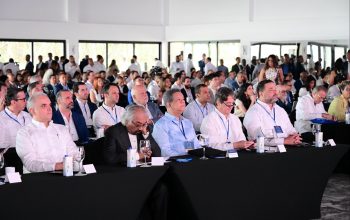news
GFDD Calls on the UN at the High Level Political Forum on Sustainable Development to Champion Innovative Practices that Engage Non-State Actors
July 20, 2016
Together with hundreds of sustainable development advocates and government delegates, GFDD participated in the 2016 High Level Political Forum on Sustainable Development (HLPF 2016), which was held under the theme ‘Ensuring that no one is left behind”” at UN Headquarters in New York City from July 11 to 20, 2016. Over the course of two weeks, the HLPF reflected on experiences and lessons learned during the first few months of Sustainable Development Goals (SDG)
implementation, and resulted in a ministerial declaration which called for ministers from around the world to leave no one behind in implementing the 2030 Agenda for Sustainable Development.
Opening the conference, Ambassador Oh Joon of the Republic of Korea and ECOSOC President, noted that the role of the HLPF in follow-up and review of the 2030 Agenda is “extremely important in charting the way forward in new and innovative ways”. Wu Hongbo, UN
Under-Secretary-General for Economic and Social Affairs, called for the HLPF’s review of SDG implementation to be “robust, voluntary, effective, participatory and integrated”.
Taking the floor during the General Debate section of the conference, Marc Jourdan, GFDD UN Programs & Outreach Manager, stressed that “an unprecedented amount of financial resources” would be needed to fulfil the 2030 Agenda objectives.
Jourdan called on the Forum to “champion innovative practices that engage with non-State actors.”
In light of these requirements, he noted that GFDD had “campaigned for two integral development reforms in its UN interventions: building capacity in developing countries through technology transfer to address national and regional priorities, and promoting the role of innovation and multi-stakeholder partnerships to meet the enhanced financing
needs of this agenda”. Concluding his intervention, Jourdan called on the Forum to recognize opportunities to raise and deliver resources, facilitated through technology empowerment, “in its funding practices and partnership approaches” if it was to realize the transformative development agenda laid out in Rio in 2012 and “leave no one behind.”
Over the course of the two-week conference, numerous panel discussions and side events were held including sessions discussing national implementation of the 2030 Agenda, the need for statistics in the monitoring and evaluation of the future development agenda, as well as the particular needs of those countries.
Secretary General Ban Ki-moon addressed the
participants in the middle of the conference to remind them that “We must all learn, in national Governments, in local authorities, in business and civil society — and also at the United Nations — to think differently,”. Before stressing the need for efforts to transform policies and strategies in order to address the challenges of sustainability.
Taking the floor in the final week of the conference before 22 Member States presented their National Voluntary Reviews to the Forum attendees, Deputy Secretary-General of the United Nations Jan Eliasson said “Every country needs to accelerate the pace”.
Among the 22 country delegates, Simon Gaviria, Minister for National Planning of Colombia, told the participants that Colombia had heeded the Deputy-Secretary General’s advice becoming the
first country to have implemented a National Development Strategy even before the SDGs were adopted. Segolene Royale, Minister of Environment for France presented her country’s report noting that France had “adopted a law on biodiversity and implemented initiatives for a renewable energy transition”. China took the podium to state that the “next 5 years will be critical” for the implementation of their own Development Agenda which seeks to
lift 55 million people out of poverty by 2020.
The session was concluded on Wednesday July 20 with the adoption of the Ministerial Declaration which states that the 2030 Agenda was a plan of action for people, planet and prosperity that also sought to strengthen universal peace in larger freedom. Ambassador Oh Joon of the Republic of Korea, President of the Economic and Social Council concluded the session by reminding participants
that the implementation of the SDGs required a transformative leadership, describing national development plans as the starting point focusing on reaching out to the most vulnerable, eradicating poverty and addressing discrimination.
About the High Level Political Forum on Sustainable Development
HLPF is the central platform for the follow-up and review of the 2030 Agenda for Sustainable Development and the SDGs. The meeting, which convened
under the auspices of the UN Economic and Social Council (ECOSOC), included plenaries, moderated dialogues and a three-day ministerial segment. Twenty-two countries presented voluntary national reviews. The meeting also reflected on the science-policy interface, mainstreaming the SDGs, monitoring progress and implementation of the SDGs, multi-stakeholder engagement, and the challenges with mobilizing means of implementation (MOI), among other issues.
For detailed summary
of the meetings of the HLPF please read the IISD Official reports available at http://www.iisd.ca/hlpf/2016/
Related Links:
Read the statement here:
http://www.un.org/sustainabledevelopment/sustainable-development-goals/
https://sustainabledevelopment.un.org/hlpf







